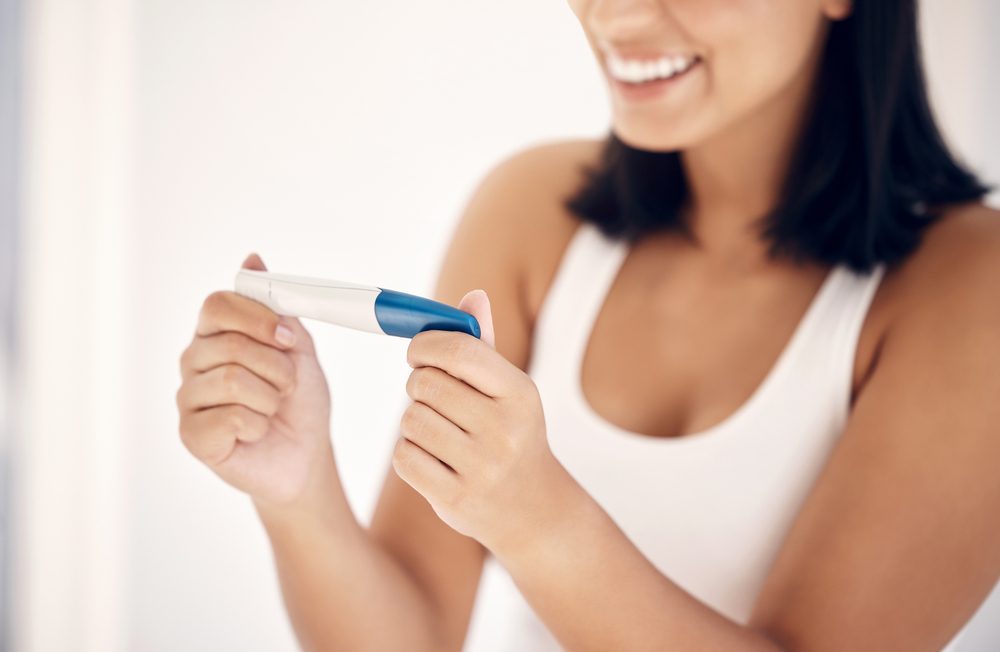On the pathway toward conception there are a lot of misconceptions floating around about your fertility. When the time comes to grow your family, it’s important to know about all of the different factors that play a role in a woman’s ability to become pregnant.
How Can I Tell If I’m Fertile?
As a woman, there are several signs and indicators that can help you determine your fertility. These include tracking your menstrual cycle, monitoring changes in cervical mucus consistency, observing body temperature fluctuations, and using ovulation predictor kits. Consulting with a Women’s Health Arizona professional can provide further guidance and fertility testing if needed.
4 Factors That Affect Fertility For Those Trying to Conceive
We’ve rounded up a series of significant and sometimes surprising facts for you to keep in mind when you’re ready to conceive, from staying on top of your overall health to getting timing just right.
1. Health and Lifestyle
There’s a significant connection between overall health and reproductive health. A number of lifestyle factors—like exercise, drug and alcohol use, weight, sleeping patterns, stress, eating habits, and more—all play a role in your ability to conceive, and this applies to both men and women.
For women, maintaining a healthy body weight is often an important step in increasing fertility, as being underweight or overweight can lead to irregular or missed periods. Your best chances of conception are when you stay within the recommended BMI range. And keep in mind that while exercise is healthy, excessive amounts of vigorous exercise can decrease fertility among women and sperm count among men.
Men and women alike will also want to keep stress levels down, avoid smoking and drug use, and keep alcohol intake to a minimum.
2. Age
When it comes to fertility, age matters. Around age 35, fertility starts to decrease and the chance of miscarriage increases. Most women reach a fertility peak in their late 20’s. But don’t be discouraged if you’re older—women at age 35 still have more than 50% odds of conceiving naturally within the first year of trying.

3. Menstrual Cycle Timing
The best time to conceive is usually one or two days prior to ovulation. Of course, many people who are trying to become pregnant use a calendar to track ovulation, but the body gives off some other helpful signs during and around ovulation as well. Here are two to keep in mind:
- Body temperature: Basal body temperature, or your body’s temperature when you’re fully at rest (such as immediately after waking in the morning), is a good indicator of ovulation. You’ve probably ovulated if your basal body temperature rises .6 degrees or more for 10 days or longer. Ovulation occurs before this rise in temperature, so tracking your basal body temperature each morning over the course of a few months may allow you to see patterns and help figure out when you’re most likely to conceive.
- Discharge: As you approach ovulation, your cervical mucus will probably become thin, clear, and stretchy, with a consistency close to that of egg whites.
4. Sperm Count and Testicular Temperature
Many people think of fertility issues as more of a woman-centric problem and fail to realize that men’s health plays a huge role in the fertility equation. It turns out that around 35% of fertility issues are related to problems with the male reproductive system, with low sperm count being the most common issue.
Sperm production tends to fare better when the scrotum (including the testicles) remains cooler than the rest of the body by around two degrees Fahrenheit. So keep in mind that jumping in the hot tub or sauna after a workout could have negative impacts on sperm production and make it harder to conceive. Even resting a laptop on the lap can have negative consequences here, especially if the computer runs particularly hot.

Female Fertility FAQs
Do Different Sex Positions Affect Your Chances on Getting Pregnant?
Sex position doesn’t matter when you’re trying to conceive. Stick with what you like and what works for you, because the position isn’t going to increase (or decrease) your chances of conceiving.
How Long Does It Normally Take to Get Pregnant?
The path to getting pregnant can take a long time, and timing won’t be the same for everyone. Couples often feel despair or seek medical advice in the first year of not being able to conceive, but sometimes the process just takes time. Somewhere around 80% of couples who are in good health and having regular sex without birth control can expect to conceive within their first year of attempting to get pregnant, but many couples are able to conceive during their second year of trying without help or treatment.
Is Getting Pregnant More Difficult After Being On Birth Control?
Many women expect to have trouble becoming pregnant if they’ve been on hormonal birth control (the pill) for many years. But in most cases, this is actually a myth. Some women are able to conceive immediately after stopping the pill, whereas others need a month or even a bit longer for their bodies to adjust to regular ovulation without the pill.
If you would like to meet with a knowledgeable doctor, consider contacting Women’s Health Arizona. As Arizona’s largest ObGyn group, we’re trained and solely dedicated to delivering the best ObGyn experience in convenient and comfortable settings around Phoenix.

